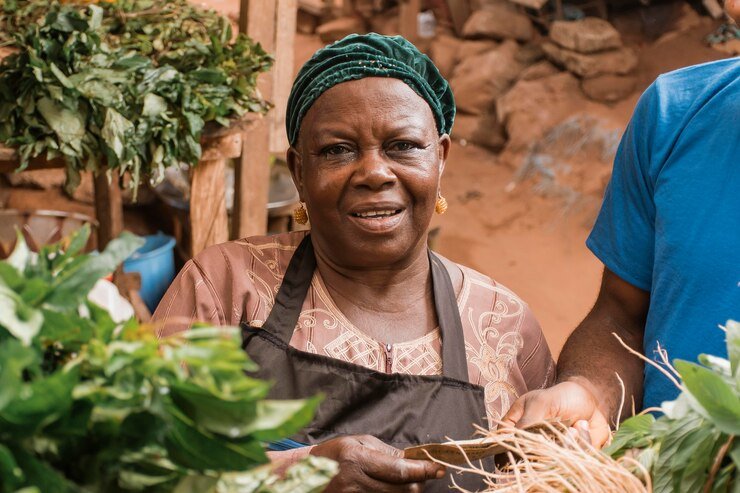At first, one may think this talks about breaking, sharing or apportioning finance into diverse sectors like for instance a business. Or it could be an individual's daily spending or the government. You are far from it, in short financial fragmentation is a huge economic challenge that should be dealt with. This is just me giving out suggestion, life has proven to be an unfair grounds with both citizens and government always working ways out to deprive one another.
The issue of financial fragmentation is one of the reasons why many countries and villages especially have remain under-developed. Lack of proper flow of finance always creates loopholes and the masses always suffer its effects. When it comes to resource allocation, it seems there is always a team of greedy individuals doing the distribution. What more should one expect in the process, the story of 'man-know-man' comes in. Adding to that, who wants to stress himself and do the needful?
Before further ado, let's try to lay a definition of this two words. Yes it entail finance and in this context we are talking about a fragmentation process where regions in the country are deprived financial access in the process. Have you ever heard how allocation is done in the states of your country?. Come back to state and local governments, how has it always properly flowed? This boils down to local government and villages. For instance, how often have loans and grants been given to the wrong people or wrong places.
source
Let me come back to Africa, there are some dots I feel if we could well connect them then things would have easily flowed. We are running a very disconnected economy and in such a case vulnerability is inevitable. What am I saying here? The problem of resource crowding makes it difficult to grow a nation. How many advanced cities or towns do you often hear of in a particular nation? The most the government does is concentrate all finance on the capital state making everyone flock there.

This creates a barrier, of course everyone cannot live in the capital state. Yet this keeps repeating; industries, factories and important sectors that promote high value businesses are stuck in a single place. It becomes very difficult to explore opportunities in the process. How does a rural fisherman benefit from this opportunity, he will have to come to town. Speaking of heading himself to town. This fragmentation already stirs up disconnection, that is why you are likely to find bad roads and uneasy access to and fro the rural areas.
This is more like stopping investors from tapping the untapped opportunities that can be found in this desolate rural environment. This was one discussion I had with someone once about how Lagos is so overcrowded. The truth is, at an early phase of the country, important buildings and structures were built at the heart of the city with little to no regard for its surroundings. Now people have to spend hours on traffic to meet up with daily routines. It is difficult to adjust it now, one thing to note here is that we are talking of infractures which will need a lot of disruptions.
source
The financial service for rural access is always either not available or very limited. Transaction limitation is already a signal of poor growth and this has continued to keep many rural areas underdeveloped. Expanding broader, financial fragmentation leads to low liquidity; when buying and selling is difficult it can create economic chaos, one of those are high prices. This is something I have been experiencing. The actual cost of goods in the rural part of the country are often cheap yet the difficulty of getting it out has always made the middle men increase prices.

I was surprised when a friend told me there are places in the country that don't accept bank transfers (they are not closer to it). You will have to always go there with cash. The first thing to consider here is the risk and the other thing to add is the scarcity of it. Assuming they have to buy more paper notes to stay in business, wouldn't they also add to their pricing?.
To conclude, let me add, one thing always leads to another. There are always undermined sectors that are responsible for huge economic damage. Currently, we are facing high products and service pricing. Why is this so? Yes, the standard of living has been raised through the government withdrawal of subsidies. Nevertheless, it also boils down to a disconnected environment. This should have been what I feel the government should have resolved first before jumping to the latter.
Just as the example I gave above, when it becomes difficult to access food which mostly comes from these underestimated rural areas, an entire economy remains vulnerable. In the end, one can say, the result of 'I don't care' which leads to poor allocation is a financial fragmentation practice.
Posted Using INLEO

Engaging
Discord Server.This post has been manually curated by @bhattg from Indiaunited community. Join us on our
Do you know that you can earn a passive income by delegating your Leo power to @india-leo account? We share 100 % of the curation rewards with the delegators.
100% of the rewards from this comment goes to the curator for their manual curation efforts. Please encourage the curator @bhattg by upvoting this comment and support the community by voting the posts made by @indiaunited.